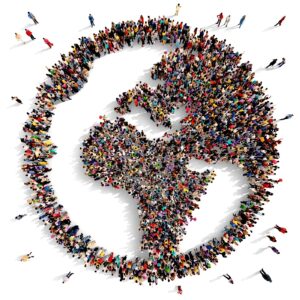Microsoft has helped over 30 million people globally, 6 mil in Asia, to be more digitally savvy through 2021 free LinkedIn Learning and Microsoft Learn courses and low-cost certifications. Very commendable and kudos to MS, but will a focus on technical skills potentially nudge aside the interpersonal experience of work? Should we be concerned or concentrate on digital skills? Is burnout tethered to technology or to people? The word has been around for ages, but its application seems to have shifted. The benefits of a hybrid work environment are manifold. A short walk (or even none) to work, reduced commutes = lower carbon footprints, and of course, greater individual agency.
Last week, the Head of Strategy for a global bank told me his engagement scores are higher than they’ve ever been with his geographically dispersed teams. “It’s not rocket science”, and he makes it a point to check-in regularly with his team. From the start of the pandemic, he made certain his team had access to the right resources, set up home offices, and was able to avoid the technology challenges in the more remote locations. He admitted such a transition was difficult for some of the team, but online platforms and other tech enablers helped his team vocalise their concerns.
He would have not succeeded had he not engaged, personally, from the start, that uniquely human touch of care.
I’ve recently heard questions in my coaching engagements about hybrid work; how to build or maintain a network, how to become visible and how it impacts on one’s career.
The new term ’hybridist’ is one who works with peers co-located in the same space and with others remotely. According to Gartner research, this hybrid workforce has exploded, with 82% of organizations now offering partial remote working, as we start to consider returning to the office.
Those standard questions on careers, networks and visibility now evolve. Work has transformed, yet some things remain the same. Whether in the same physical space or remote, understanding power dynamics, being visible and maintaining networks will endure. That’s important to remember.
Read the full article on Medium.



